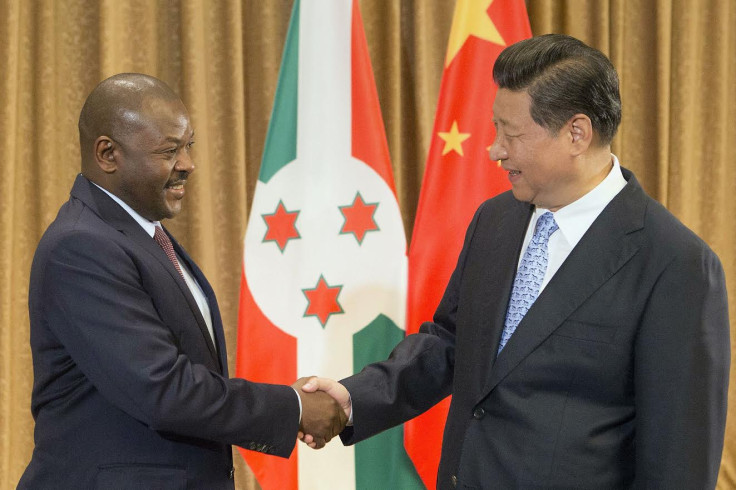How Burundi can benefit from historical China visit amid worsening crisis
Chinese VP Li Yuanchao is on a three-day visit to conflict-hit Burundi.

Chinese Vice President Li Yuanchao is on an unprecedented three-day visit to conflict-hit Burundi. He landed in the capital Bujumbura on Wednesday (10 May), as the nation's deadly crisis extends into its second year.
The East African nation's political instability has worsened amid an ongoing food crisis, which has already claimed numerous victims and displaced tens of thousands in some of the most-affected provinces.
Since the crisis began in 2015, Burundi has become an isolated place: it distrusts the United Nations (UN), has accused the European Union of "destabilisation" and repeated accusations have put a strain on relations with neighbouring Rwanda.
With this visit, China – which has been on good terms with Burundi since the 1960s when the African nation helped allow the accession of the communist country to the UN – proves it remains one of Burundi's leading business partners and diplomatic supporters, notably within the UN Security Council.
According to Burundi's Minister of Foreign Affairs Alain Aimé Nyamitwe, the visit shows "to the entire world and to other partners, that it is possible to invest in Burundi, and benefit economically with Burundi, because Burundi is looking for win-win co-operations".
In March, during a Sino-Burundian meeting in Beijing, the Chinese Minister of Foreign Affairs reiterated the country's support for a number of sectors in Burundi, including agriculture, infrastructure and human resource development.
Ahead of the visit of the Chinese delegation, Nyamitwe also emphasised that an international meeting taking place in Burundi shows that stability and relative peace reign, contrary to reports of low-level violence, arbitrary arrests, torture, mass rapes and summary executions.
"If this country, which has importance on the [international] chessboard, decided to send an official of this level, it is that this country considers, like us, that there is not really place of worry," Nyamitwe told RFI.
China should ensure it is not 'reinforcing the dictatorship'
The visit comes as Burundi's opposition claims authorities are willingly exacerbating the food crisis, brought by heavy rains and droughts that hit crops.
Humanitarian agencies called for international assistance as early as January, when an estimated 40% of the population was food insecure. However last month President Pierre Nkurunziza forbade trucks from the UN's World Food Programme (WFP) containing 300 tonnes of beans from entering Burundi.
For the opposition, China's position as a partner is "only reinforcing Nkurunziza's dictatorship".
While acknowledging "it is a good thing that China has thought about assisting the distressed population", president of civil society organisation FOCODE Pacifique Nininahazwe urged China to ensure humanitarian aid is not used to increase the malaise felt by the population.
The opposition claimed that food donated in February by China, which offered emergency food aid (primarily rice) to Burundi in 2016, was selectively distributed to militants and supporters of the ruling CNDD-FDD party, but IBTimes UK could not independently confirm these allegations.
"If they help Burundians find and get food to eat today, but that this allows for Nkurunziza to reinforce his position, in this situation China should realise that it is not helping Burundians," Nininahazwe told IBTimes UK in a phone interview.
China and Burundi are yet to make official declarations on the bilateral consultations.
© Copyright IBTimes 2025. All rights reserved.






















